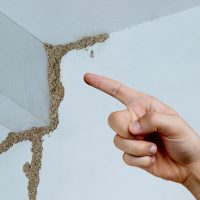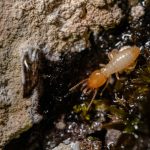At some point, you have likely tried DIY pest control, only to have the pests return, making you feel frustrated and disappointed.
Usually, while do-it-yourself pest treatments are typically a homeowner’s initial option due to their minimal cost, they sometimes prove to be ineffective and even counterproductive, as they tend to worsen the pest infestation problem.
Notably, if you ever found yourself in that predicament earlier, then you would understand why your effort did not work and what you need to do next to ensure effective pest control. Therefore, in this article, we will address the question of why your DIY project did not yield the desired results and outline the necessary steps to take.
Reason DIY Pest Control Fails Most of the Time
1. DIY Pest Control Treatment is Only Efficient for the Short-term
Do-it-yourself treatments, such as over-the-counter traps, repellents, or homemade concoctions of vinegar and baking soda, are not effective in the long term.
For instance, spraying insecticide will kill exposed pests but won’t reach hidden breeding nests or colonies, so the treatment is temporary, and the pest infestation will grow again.
2. Some Pests are Resistant to Over-the-Counter Pesticides and Do-It-Yourself Treatments
Certain pests in Singapore, such as pharaoh ants, are immune to most DIY treatments. You will spray the ants, but the colony will segment, disperse, and continue to inhabit the house, making the DIY approach ineffective.
3. Incorrect Usage of Pest Control Chemicals
Another frequent issue that occurs is the use of pest control chemicals in a trial-and-error method. Homeowners who lack knowledge about pest control are likely to apply the wrong mode of treatment or place baits in an incorrect position. Such a process has a negative impact because the pests will likely avoid the treated area or even become resistant to the chemicals. Moreover, improper use can lead to unintentional poisoning or pollution.
4. DIY Pest Treatment Don’t Treat the Root Cause
Homeowner treatments rarely address the root causes of pest infestation issues, such as water leaks, cracks, or hygiene habits that invite pests in the first place.
Risks of Do-it-Yourself Pest Control Products
1. Health Risks
Self-treating the pest infestation is risky and poses severe health implications. Insecticides that can be purchased without a prescription are chemicals that, when misused, cause skin illness, respiratory distress, or other fatal health outcomes. For instance, whenever you unintentionally expose yourself to insecticides, you may vomit, feel intoxicated, or suffer from permanent organ damage.
Similarly, you become infected with diseases whenever you come into contact with pests like rodents and other mammals without utilizing protective gear.
2. Expensive in the Long Run
Aside from the health risks, homemade fixes can also become expensive in the long run. What seems like an affordable experiment ends up being a cycle of buying cheap alternatives and dealing with unavoidable property damage. For instance, if termites are not professionally eliminated, they may cause significant structural damage that would be more costly to repair than the expenditure incurred for professional pest control.
On the other hand, while experienced pest control treatments may be initially expensive, they can save you money in the long run by preventing costly damage and the need for repeated treatments.
Reasons You Should Hire Professional Pest Control Services
When DIY pest control treatment fails, the best course of action is to turn to a professional pest control company. With their extensive experience, specialized equipment, and customized treatments, you can trust them to effectively eliminate pests. Here are the benefits you can expect.
1. Proper Inspection and Identification
A skilled pest control expert will conduct an inspection to identify the type of pest, its breeding location, and the intensity of the infestation. Inspection is critical since different pests can be treated in distinctive ways. For example, termite treatment can be eradicated either through soil treatment or a bait system that targets the entire colony.
2. Customized Treatment Plan
Experts create tailored solutions that may involve green solutions, chemical treatment, or integrated pest management practices. Integrated pest management is a comprehensive approach that combines multiple strategies to prevent and control pests, including habitat modification, biological control, and the use of resistant varieties.
3. Prevention and Long-Term Protection.
Professional pest control services not only eliminate pests but also provide advice on preventing future infestations. This can include sealing entry points, fixing water leaks, and offering tips on how to avoid reinfestation. Their comprehensive approach provides long-term protection.
How to Choose the Most Appropriate Pest Control Service in Singapore
When selecting a pest control agency, consider their experience, the specific services they offer, and their safety record. Some agencies provide a guarantee or warranty on the job, which may include a promise to offer additional treatments if the initial one is not effective or a commitment to cover the cost of any damage caused by their treatment.
Importantly, review the customer reviews to assess their effectiveness and reliability before you proceed to consider engaging them.
Conclusion
As DIY pest control failures are common, rather than wasting time repeating the same task and failing to achieve the expected results, let the professionals handle it to ensure a long-term solution.
Therefore, if you encounter a recurring pest issue, do not hesitate to contact a professional pest control service provider. They will do a thorough inspection and provide a personalized pest treatment solution.
Lastly, at Eminent Pest Control, we guarantee top-notch and reliable pest control solutions for all your pest control and management needs.








































